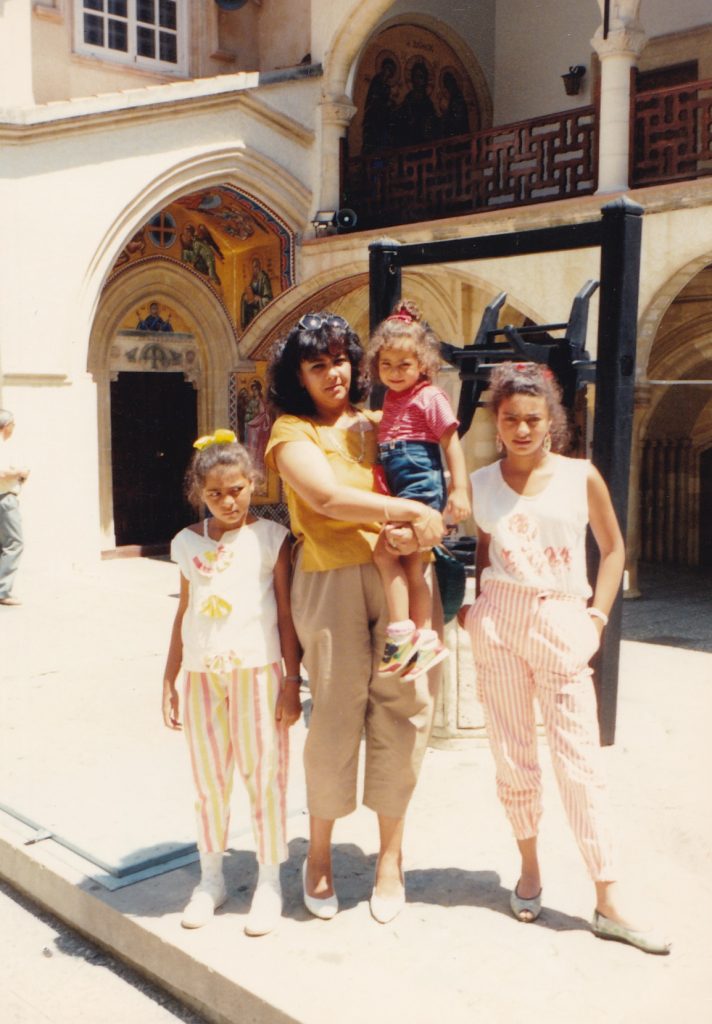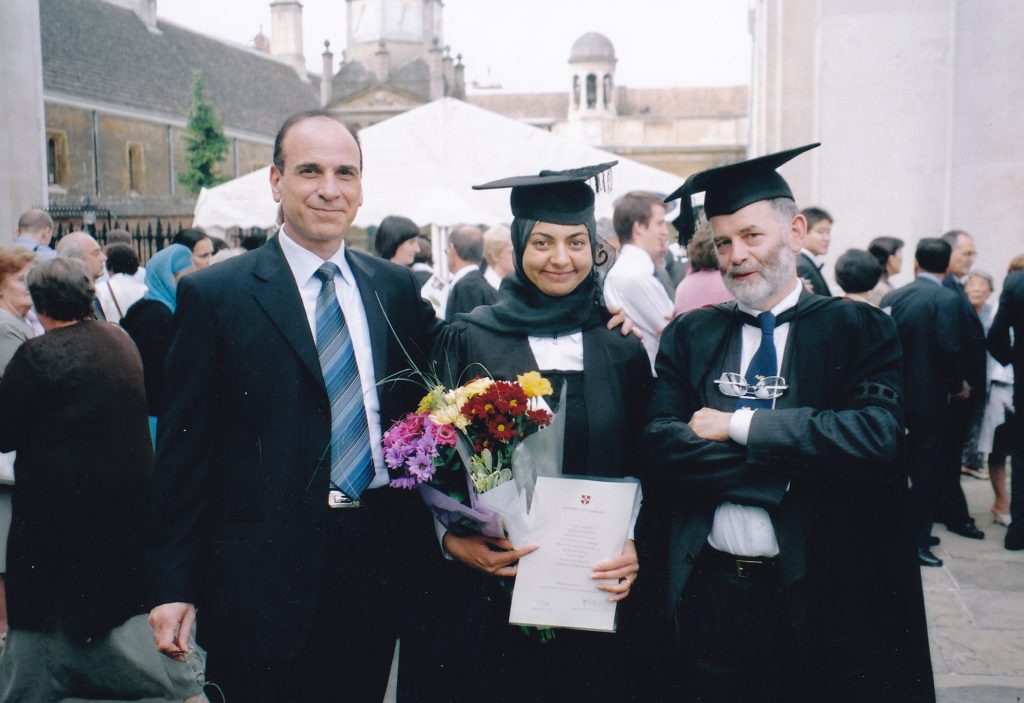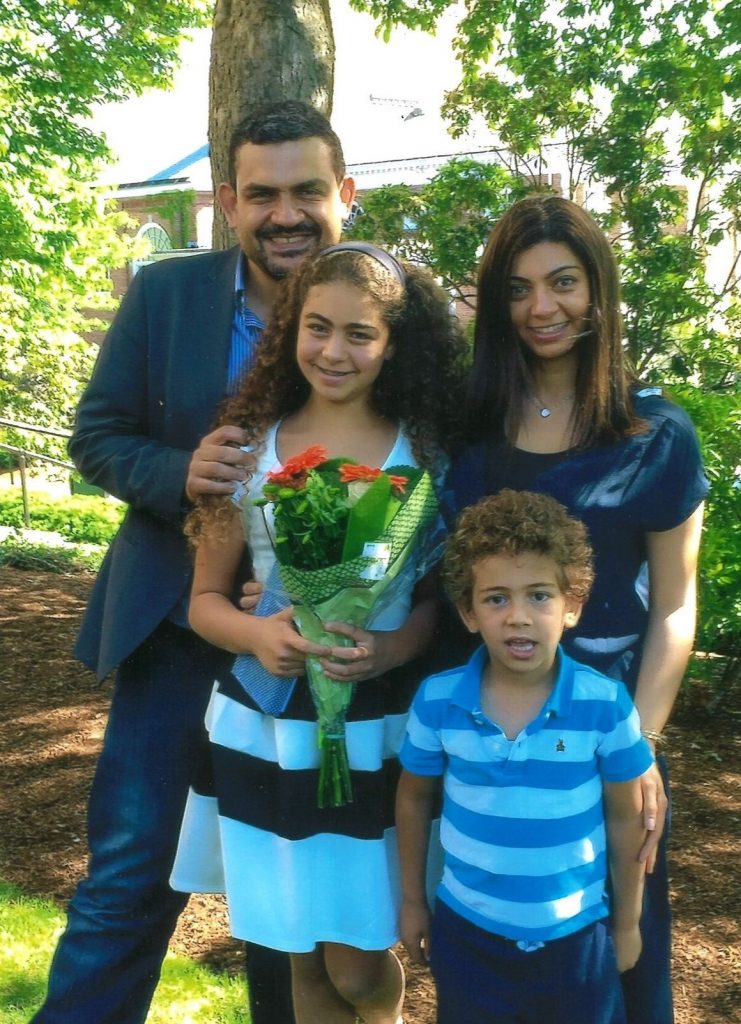
Read this article on THRIVE GLOBAL
As our world is more connected by technology, the algorithms that run it are more important. In her book, Girl Decoded: A Scientist’s Quest to Reclaim Our Humanity by Bringing Emotional Intelligence to Technology, Rana el Kaliouby’s journey to change the ability of computers to communicate better with more empathy unfolds. As a young Muslim woman from Egypt, she studied in both Cambridges, England and Massachusetts. She challenged family rules, gender roles and handedness; she is left-handed and there is a belief that using the left hand inspires the devil to be one’s companion. She overcame her personal battles and as cofounder and CEO of Affectiva, an artificial intelligence company, and Emotion AI pioneer, she now battles for us all with her dedication to bring emotional intelligence to the digital world.

As Rana el Kaliouby explains in her book, “My goal is not to build emotive computers, but to enable human beings to retain our humanity when we are in the cyber world.” Her quest is “to humanize technology before it dehumanizes us.” In the tech world, it is still rare to see a woman in charge let alone, “a brown-skinned computer scientist at that—in a field that is still very male and very white.”

Photo courtesy of Rana el Kaliouby
She has been required to find her own voice and reconcile her dreams and goals with her upbringing. “The journey that has taken [her] from “nice Egyptian girl” to a strong “woman in charge.”
While her mother was one of the first female computer programmers in the Middle East and worked at the Bank of Kuwait, it was unusual for a married mother to work at all and she still upheld and modeled very traditional gender roles when at home.
Her personal story of life in the Middle East includes a childhood as an expat in Kuwait and then having to leave quickly when Saddam Hussein, then President of Iraq, invaded and being in Egypt during Arab Spring with schools and offices all closed, curfew at 3pm and no flights in or out of the country.

Photo courtesy of Rana el Kaliouby
Rana el Kaliouby and her husband, Wael, were very supportive of each other’s dreams and while normally a married Egyptian woman would not move from Egypt to England to study, halfway around the world, he was very open-minded and supportive of her applying to schools overseas.
I was fascinated when she reported that “in the Middle East, women actually outperform men in STEM subjects, perhaps because we have to work harder to prove ourselves.” I had not thought to look at women in STEM in other countries and loved learning that “there were equal numbers of male and female computer science majors, and this is true throughout the Middle East. Indeed, [she] was shocked to learn that in the United States, computer science majors, and majors in all other STEM (Science, Technology, Engineering, and Math) disciplines, are overwhelmingly male.”
Her work is informed by her need to bridge her cultural heritage and evolving roles for women which requires empathy and that is what she is training computers to do as well. While she was studying far from her family, it was painful that no one could notice her feelings of being distraught and lonely and afraid she could not complete her work in time as the computer shared none of the “nonverbal signals, facial expressions, and fluctuations in voice, gesture, and body language. All of this is lost when we communicate online.” She focused her work on “teaching computers how to read faces, the way humans do, so they could recognize and respond to our facial expressions, from smiles to scowls.”

Photo courtesy of Rana el Kaliouby
She realized that “computers are functionally autistic: They can’t see or process emotion “data” or respond to emotion cues.” And that when we “interact in the emotion-blind cyber world, we are all rendered functionally autistic.” She was introduced to Simon Baron-Cohen at Cambridge and his work within the world of autism. The same “human” skills she was teaching computers were also needed by humans on the autism spectrum. He shared his database of raw video files with her which was somewhat unusual in that they were from such different fields but the collaboration made it possible for her to continue her work. As she said, “It was beyond my wildest dreams, and amazingly generous, the kind of sharing of knowledge that propels research and society forward.” Later in her career, when given the option to share and help a fledgling student or researcher, Rana always was generous to others as Baron-Cohen was to her. She understood that we all need to work together just as we all may need a tool of technology to assist us.
As Rana el Kaliouby said: “I believe that technology can augment human potential. Just as people use canes or wear glasses or use hearing aids to help them walk, see, or hear, an emotion prosthetic can help boost our empathy skills. Such a tool doesn’t take away from our other strengths, but adds to our innate abilities.”

with her father and PhD advisor Peter Robinson.
Photo courtesy of Rana el Kaliouby
Her concern is that our current path of emotion blind technology creates a risk that we will lose our social skills in the real world. Will we forget how to be kind, compassionate and empathetic to one another?
In Cambridge, England, Rana worked with Ofer Golan, the first Israeli she had ever met. Baron-Cohen said: “Here were two scientists (an Israeli and an Egyptian) on a similar quest, from countries that have historically been in conflict. But what I really enjoyed was watching these two scientists connect as human beings and talk about concepts like empathy.” The scientists could work together but the algorithm might not recognize them. “In the case of facial decoding, if I show the algorithm only faces of middle-aged white men, when it reads the face of a brown Egyptian girl, it may not be able to identify it—it may not even recognize it as a face at all… an algorithm is only as open-minded and smart as the human who built it.” An Israeli PhD student,Tal Sobol-Shikler, was planning to join the lab but wrote and said that she didn’t want to apply if it would cause conflict. Real world problems between Israel and Egypt could have stopped these women from working to change the world together in the lab.
One woman would change the trajectory of Rana el Kaliouby’s entire life. She read Rosalind Picard’s book, “Affective Computing,” and would meet her during her PhD program and eventually work in her Affective Computing Group at the MIT Media Lab as a Post-Doc. Picard’s work reimagined the relationship between humans and technology and highlighted the importance of creating smarter Artificial Intelligence that could interpret and process emotion. They applied for a National Foundation grant to build the “Social-Emotional Prosthesis for Autistic Individuals,” for people on the autism spectrum to understand the emotional cues of others and to enhance human-to-human communication. Rana was invited by the founder of the MIT Media Lab, Nicholas Negroponte, to be a postdoc and she wondered, “What if I could build something that really helped autistic kids? What if this technology changed for the better the way human beings “connected” online?”
She made the decision to move 5,400 miles away to America without consulting her husband. She said that she “had something important to contribute to the world and I wanted to see it through.” I loved how she talked about joining the lab, “In Egypt, you get dinged for taking risks. It’s discouraged in a conformist society. You don’t want to call attention to yourself, you don’t want to stand out…At the lab, being bold, thinking big, and taking risks were rewarded. Because when you take a risk, when you take a leap of faith, you build something new, and even if it fails, you learn from it.”

her daughter, Jana’s middle school graduation in Milton, MA.
Photo courtesy of Rana el Kaliouby
She had to explain herself to the others in the lab as she was the only one wearing a hijab, a scarf head covering. One person asked, “Do you wear the scarf because of medical reasons?” They were surprised that she did not drink alcohol and had only dated her husband. She was a radical thinker but not a rebellious dater!
At one point, her family persuaded her to stay in Egypt in an attempt to save her marriage from divorce, so when she was selected by MIT Technology Review as one of its “35 Innovators Under 35” in technology in September 2012, she did not accept her award in person. However, when she received the 2015 Ingenuity Award from Smithsonian, which recognizes the “shining achievements, of individuals in nine categories, who have had a revolutionary effect on how we perceive the world and how we live in it.” She was divorced, living in the United States and accepted in person. She also was invited to give a talk at TEDWomen and shared how her work at Emotion AI is about “humanizing our technology to promote better understanding and better human-to-human connections.” She is also a Forbes’ Top 50 Women in Tech, 2018 Inc Female 100 and 2018 Fortune 40 Under 40.

Photo courtesy of Rana el Kaliouby
She has been raising concerns about racism and bias being baked into our technology. “If we continue on the Silicon Valley tech track, where only a very small number of people design systems for the rest of us, technology is going to be biased—perhaps not intentionally, but we will be unwittingly duplicating the biases that exist in society. Our technology has to detect the smiles of people living in remote areas of India, the smiles of hijabi women, and the smiles of transgender people.”
Rana el Kaliouby allowed Dr. Ned T. Sahin to work with her Affectiva software, with it he developed “Brain Power’s product, the Empowered Brain, with game-like apps that enable children and adults with autism, attention deficit hyperactivity disorder (ADHD), and other brain-related challenges to learn social-emotional skills.”
As Rana el Kaliouby explained: This is “the fulfillment of the mission I began nearly two decades ago: to build an emotion prosthetic for people who needed an EQ boost.”
Erin Smith is using Affectiva’s software to track alterations in facial expression to develop a tool to detect Parkinson’s disease in its earliest stages. In working with Smith, Rana created “a whole new use of Emotion AI technology and also supported this young person in her journey of discovery and innovation.”

Rana el Kaliouby and Roz Picard celebrating the 10th anniversary of Affectiva at the MIT Media Lab where it all began. Photo courtesy of Rana el Kaliouby
Rana el Kaliouby is accomplishing her goals to make us more human while in contact with technology rather than allowing emotionless technology make us less human. “Why can’t we design Emotion AI in a way that makes us more human, that makes us more collaborative and understanding of the subtle cues of others, and makes us more empathetic so that it helps us connect better?” I cannot wait to try ROC Speak which is an AI coach by Hoque called CoCo or Collaboration Coach that improves your video-conferencing etiquette and presentation skills.
Her Emotion AI is a “tool to improve our interactions, help us see past our own biases, and judge people on the basis of their potential, not on stereotypes…These are the skills that give people with high EQ the edge in life, the “soft skills” that will dominate the workplace in the world of automation.”
In hospitality and in homes, we are seeing more and more social robots. From Google Home to Echo Dot to robots like Pepper at the Waldorf Astoria in Las Vegas as well as Fetch and Jett at Vdara in Vegas who have bodies and can bring you things to Rose, the scintillating artificial intelligence chat bot at The Cosmopolitan of Las Vegas, who can lead you on a graffiti art tour of the property by text message. This “new class of robots is emerging today that will live, play, and work alongside humans…but if they are to be accepted by us, and fit seamlessly into our lives, social robots must have social and emotional intelligence.” A robot named, Mabu, is a home health companion. “Mabu’s mission is to help people better manage the challenges of chronic disease, like managing symptoms; dealing with stress, anxiety, and depression; sticking to a diet or exercise plan; and medication adherence through education and support.” Mabu can help people take their medicine on time so that they get better.
Next Rana el Kaliouby is tackling driving as 94% of all serious accidents can be linked to human error. Over 40,000 people in the USA die in automobile accidents each year which is as many as die from breast cancer each year. In an effort to save lives, she is using Emotion AI tools to create cars with intuition.
In her career, she has created computers with greater emotional intelligence and technology that is responsive to human beings. Next she envisions “a world that is full of compassion and empathy, where people from all corners of the planet can not only communicate with one another with and through technology but do so in a way that doesn’t erode our humanity—but rather makes us more caring, better human beings.”
Read this article on THRIVE GLOBAL

Read all my articles on THRIVE GLOBAL

